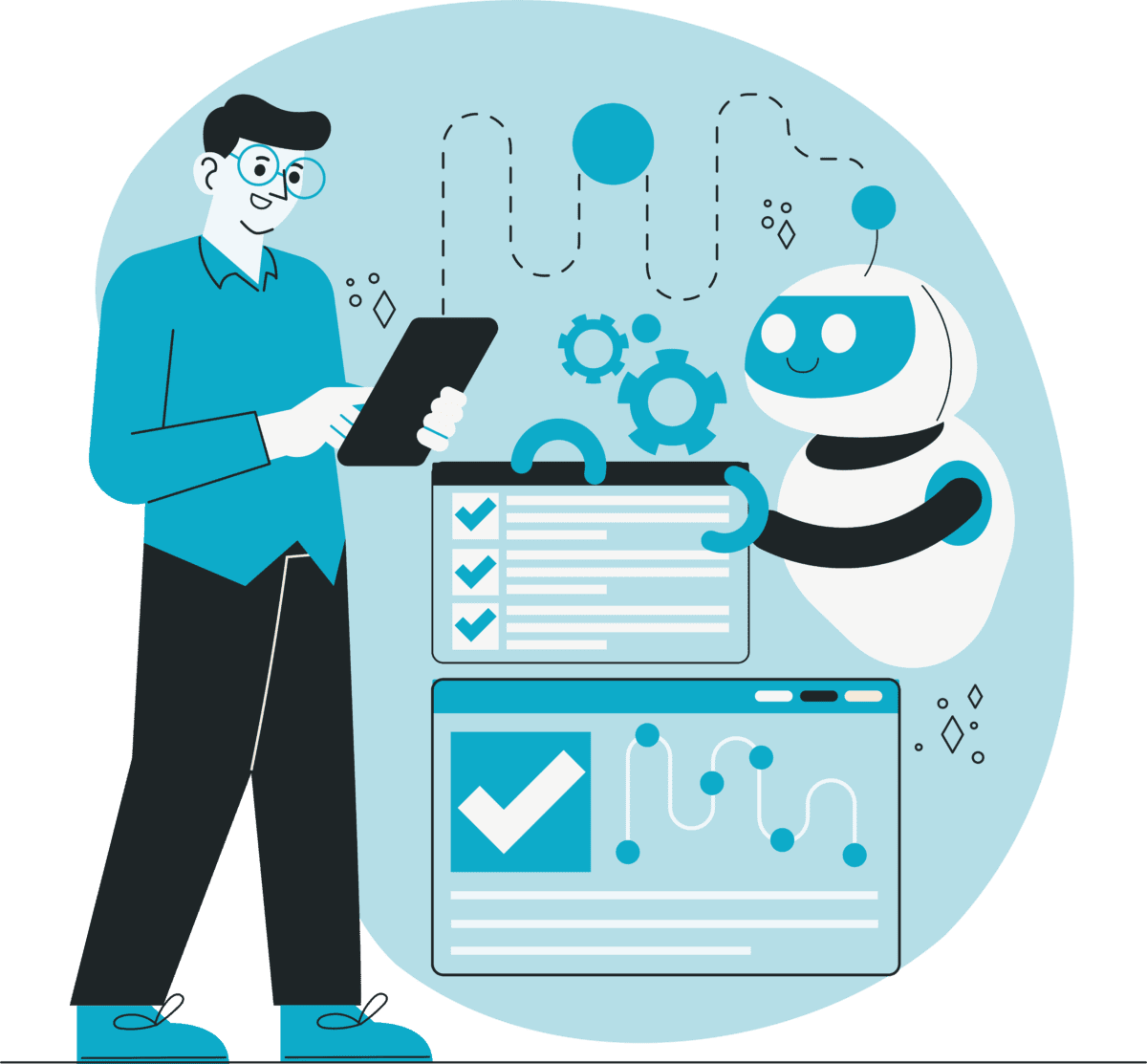Supercharging sustainable growth strategies with AI in business
It wouldn’t be an exaggeration to say that Artificial Intelligence (AI) is no longer just artificially intelligent. Over the last few years, the technology has evolved significantly, and is now capable of miming the actions of experts across many domains. It can pick the most profitable trades, suggest the most optimal ways to run a manufacturing plant, and even outperform experienced underwriters in loan decisioning. Among many other use cases, we will be able to use AI in business for sustainable growth.
After these developments, it is no wonder that organizations are applying the technology to maximize their revenues and accelerate growth. And most are emerging successful too – AI is enabling them to make business processes more efficient and faster, and customer experiences more seamless. Moreover, the technology is enabling businesses to retain their competitive edge even in the face of evolving business conditions.
In the next paragraphs, discover the multitude of ways in which AI can help your business clock sustainable growth, and what factors you should consider before bringing it to your organization.
How AI drives sustainable growth
The application of AI in business enables organizations to achieve faster, more consistent growth in multiple ways. Here are some of them:
- Improving process efficiency: The application of AI in repeatable processes can improve their efficiency and productivity, thereby minimizing resource consumption. Cognitive automation, computer vision, and natural language processing are the key technologies enabling faster, cheaper, and automated business processes today.
- Enhancing customer experiences: With customer expectations constantly on the rise, leading businesses are leveraging the technology to build more intuitive customer experiences. It is therefore not surprising that service operations optimization is its top area of application [1].
- Accelerating innovation: AI has significantly reduced the time to innovate towards new use cases, and in achieving scientific breakthroughs. As a result, businesses are adopting it to launch new products and build new revenue streams.
- Better business decisioning: Finally, implementing AI in areas such as customer segmentation, service analytics, risk analytics, and lead generation can help business owners make data-driven decisions, and consequently achieve improved outcomes.
Industry-specific applications of AI
Beyond these factors, AI also finds industry-specific applications. For instance, AI-controlled shop floors run at peak productivity and optimize resource and energy consumption – thereby saving costs, maximizing production volume, and elevating profit margins. In medtech, AI-embedded devices can lead to better patient outcomes through early diagnosis and personalized care delivery. Likewise, in CPG and retail industries, AI is becoming an essential technology in supply chain management, demand planning, promotions management, and customer service.
All of these use cases enable organizations to build a sustainable source of competitive advantage and consistent profit margins which scale with business growth.

Green future is an intelligent future
Sustainability is another key area where AI is seeing increasing adoption from businesses. One of the mature use cases is sustainability decisioning, where AI algorithms can track sustainability metrics against set targets, and uncover high-opportunity areas for emissions reduction.
However, some aspects of AI adoption can contribute to Scope III emissions, as the training of AI models is compute-intensive – and as a result, consumes a significant amount of energy. Some cloud computing companies are, however, offering servers which are located in datacenters running on renewable energy – for training AI models.
Implications of AI adoption for businesses
AI is already being adopted at pace by leading businesses across all industries. In fact, 44% organizations are already embedding AI into their applications and processes [2]. This will have two key implications for other businesses:
- Increased competition: AI applications bring significant efficiency and productivity gains, and promote cost savings. This raises the competitive quotient for adopters, thereby forcing non-adopters to follow suit.
- Altered industry dynamics: Technology innovations are disruptive in nature. They change the manner in which industries operate in significant ways. AI is no different – its adoption has altered the competitive dynamics in many industries.
In fact, smaller businesses have challenged large-scale organizations to adapt to shifting industry trends by innovating with AI. Both of the above factors will compel businesses to up their investments in AI and apply the technology to drive sustainable growth.
Using AI responsibly: addressing the ethical and regulatory aspects
Despite the benefits of AI in sustainable growth, adoption of the technology calls for adequate strategic planning. AI adoption raises ethical concerns, which must be addressed by a team of experts on the legal, technical, privacy, and fairness aspects of AI. Some of the key issues to be addressed include:
- Explainability of AI: The output of the AI models should be explainable. Cloud providers that offer AI services (like Google) are already offering explainability features in their AI offerings.
- Fairness of AI models: AI models should not be biased. Otherwise, their use in decision-making may contribute to behavior that is discriminatory towards a particular gender, race, or a social group.
Finally, regulatory compliance is also an important aspect of responsible AI adoption. When building AI use cases, businesses should understand data privacy and security requirements posed by key regulations like the General Data Protection Regulation (GDPR).

Guiding your organization through an AI transformation
AI has a marked impact, not just on the outcomes of a business framework, but also on the inner workings of the organization. AI models will take up some of the work that is done by your team members, and they may even outperform human employees in some scenarios.
As a result, there will be anxiety amongst teams during an AI transformation. Moreover, some employees may be resistant to changing their existing ways of working. All of these factors must be addressed in a change management plan. As a business leader, you must maintain clear lines of communication with your team members on what to expect – and offer ample training to help them adapt to the new ways of working.
Are you ready for AI?
Moving forward, AI will become increasingly important in driving business strategy decisions. It is changing the role of employees in an organization in profound ways. The good news is that while AI adoption brings cost savings, productivity improvements, and efficiency gains, it also improves the experience of customers and employees. Therefore, the technology helps businesses progress towards holistic outcomes that are desirable for the business owners, investors, employees, consumers, and the society as a whole.
However, achieving these outcomes requires businesses to pay attention to ethical and regulatory issues underpinning AI adoption. In addition, it is imperative to remember that AI will work alongside your existing team members in driving these outcomes. Hence, as a business leader, it is crucial to address their concerns regarding AI adoption, and how their work will be affected by it. An effective change management program is therefore crucial to ensure successful AI adoption and building a bionic organization. For most businesses, tapping into the expertise of consultants experienced in AI transformations will be instrumental in ensuring the success of such initiatives.
Want to implement AI throughout your organization? Plan a free consultation and we will discuss all the possibilities.
We love helping ambitious organizations reach new levels of sustainable growth through vision and purpose, strategy and execution, digital tools and go-to-market optimization.











